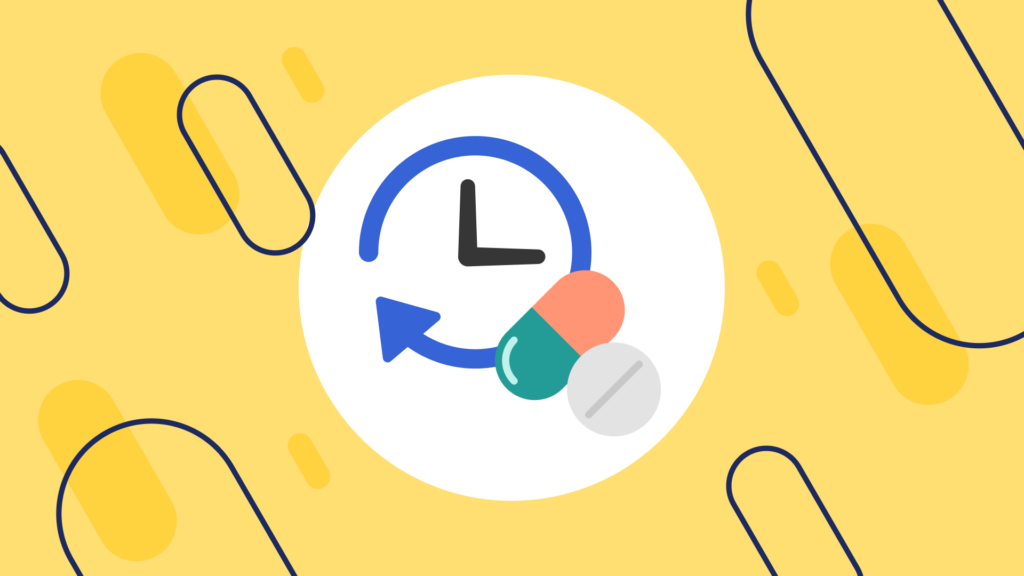Actively listening to the voice of the customer at scale
Why is active listening important in healthcare? Listening at scale with AI amplifies the patient voice by aggregate data from millions of conversations to drive relevant and impactful macro insights.
Learn More
Build an effective, immersive insights program that listens to provide honest and raw feedback – directly from your customers.

Using Patient Insights to Improve the Prescription Process
By hearing the actual voices of their patients, a regional hospital system was able to improve processes and communication for their triage team and patients.
Read the Customer StoryWhy is Active Listening Important in Healthcare
Active listening is a communication technique that involves giving full attention to the speaker and showing empathy, understanding, and responsiveness in a conversation. It’s more than just hearing the words—it’s about comprehending, retaining, and responding appropriately.
But why is active listening important? The importance of active listening largely lies in its ability to help businesses identify and address customer pain points. It allows them to communicate more clearly with those they serve, keeping everyone on the same page.
This form of listening plays an especially critical role in healthcare, where patient communication is of the utmost importance. So why is active listening important in healthcare? Here’s a breakdown of some of the reasons healthcare organizations are starting to employ this technique in their practices:
- Enhanced Patient Understanding: Active listening enables healthcare professionals to truly understand patients’ symptoms, feelings, and concerns. By paying close attention and asking follow-up questions, they can gather more accurate information and make better diagnostic and treatment decisions.
- Building Trust: Trust is vital in any relationship, especially in healthcare. Patients need to feel that their healthcare providers genuinely care about their well-being. Through active listening, a deeper connection is established, leading to increased trust and confidence.
- Emotional Support: Many patients may feel overwhelmed, anxious, or scared about their health condition. Learning how to be a good listener in communication is vital for healthcare professionals to alleviate some of those fears.
- Patient Compliance: Understanding and following medical instructions are vital for a patient’s recovery. Active listening ensures that the patient has clearly understood the advice or treatment plan.
- Professional Communication: Active listening is just as important among team members as it is between providers and patients. Effective communication ensures that everyone on the team is on the same page, reducing errors and enhancing patient care.
Examples of Active Listening in Healthcare
Why is active listening important in healthcare? Active listening is important in all sectors, but is particularly crucial in healthcare, as people’s livelihoods are at stake. Patients need to feel cared for, and they need to thoroughly understand their treatment options in order to receive quality, relevant care.
The best examples of active listening in healthcare demonstrate the value of good communication. For instance, a mental health professional might use verbal and non-verbal cues to show that they’re fully engaged with a patient’s narrative about their anxiety. The therapist may nod and say things like, “Tell me more about that experience.”
Other active listening examples include nurses answering patient questions about medications and general practitioners (GPs) listening carefully to patients’ descriptions of symptoms. A good listener example between healthcare professionals might involve A team of healthcare providers discussing a complex case.
Whether you work directly with patients or are looking for ways to improve communication with your teammates, these 7 key active listening skills can aid in your efforts:
- Paying Full Attention: Whether with a patient or colleague, being present and undistracted lays the foundation for effective listening.
- Understanding and Empathizing: Showing empathy through verbal cues or body language can make the speaker feel heard and understood.
- Asking Open-Ended Questions: This encourages the speaker to provide more detailed information, leading to a deeper understanding.
- Providing Feedback: Summarizing or paraphrasing ensures that both parties share the same understanding of what has been communicated.
- Avoiding Interruptions: Allowing the speaker to fully express themselves without cutting them off creates a more open and respectful dialogue.
- Observing Non-Verbal Cues: Being aware of body language and facial expressions provides additional insights into the speaker’s feelings and thoughts.
- Responding Appropriately: A thoughtful and relevant response indicates that the listener has fully engaged with and understood the speaker.
Active Listening With Patients
The importance of listening to patients cannot be overstated. It goes beyond merely hearing words and involves a conscious effort to understand, engage with, and respond to what the patient is saying. Through this deeper form of communication, active listening fosters a human connection that can profoundly influence health outcomes.
By paying close attention and being fully present in conversations, healthcare providers can gain a more accurate and nuanced understanding of a patient’s symptoms, concerns, and overall health. This information is vital for making accurate diagnoses and ensuring that patients are comfortable and knowledgeable about their care.
What’s more, active listening can strengthen the patient-provider relationship. By showing empathy and making an effort to understand the patient’s perspective, providers can build trust and rapport. This connection may make patients more likely to open up about their health concerns and adhere to medical advice.
The importance of listening in healthcare also lies in emotional support. Many patients feel anxious, scared, or overwhelmed by their health conditions or the healthcare system itself. However, by practicing active listening, healthcare providers can recognize and respond to these emotional needs, offering comfort and reassurance.
Active listening is also vital for ensuring that patients fully understand their care plans. Misunderstandings or lack of clarity can lead to non-compliance with treatment, with potentially serious health consequences. Active listening leads to better compliance and empowers patients to take an active role in their health.
Active listening with patients allows healthcare providers to recognize and address underlying or less obvious issues that may not be immediately apparent. A patient might mention something in passing that, to an attentive listener, reveals critical information that impacts their health. By picking up on these cues, providers can offer more comprehensive and holistic care.
How It Works
Gain a deeper level understanding of contact center conversations with AI solutions.
See a PreviewAggregate
Pull customer interaction data across vendors, products, and services into a single source of truth.
Analyze
Collect quantitative and qualitative information to understand patterns and uncover opportunities.

Activate
Confidently take action with insights that close the gap between your organization and your customers.
Active Listening in Nursing
Because nurses are often on the front lines of patient care, their ability to communicate effectively with patients can have a tremendous impact on both medical outcomes and patient satisfaction. Recognizing the importance of active listening in nursing, a growing number of healthcare professionals are seeking ways to create a more meaningful and trusting connection with patients.
So why is active listening important in healthcare? More specifically, why is active listening important in nursing? One of the primary reasons is that it facilitates personalized, patient-centered care. Understanding a patient’s needs and concerns is crucial for nurses to tailor their approach and interventions accordingly.
Another reason for this growing emphasis on active listening in nursing is that it can enhance collaboration and teamwork. Nurses often work in multidisciplinary teams, and their ability to listen actively to both patients and colleagues ensures that everyone’s insights are taken into account. This collaborative approach can lead to more cohesive and effective care.
Active listening examples in nursing are numerous and varied. For instance, a nurse who is administering medication may notice a patient’s hesitation or confusion. By asking open-ended questions and listening attentively to the patient’s responses, the nurse can uncover underlying concerns or misunderstandings and address them appropriately.
Active listening in nursing examples extend to areas like patient education, family interactions, chronic care management, and end-of-life conversations. In each of these contexts, active listening enables nurses to provide care that is more responsive and effective.
The relationship between nurse communication and patient satisfaction is also strongly influenced by active listening. Patients who feel heard and understood are more likely to be satisfied with their care. This satisfaction can, in turn, lead to better compliance with treatment plans, more positive health outcomes, and higher overall ratings for healthcare facilities.
Active listening in nursing benefits nurses too. By engaging deeply with patients, nurses can find their work more rewarding and meaningful. They may also be better equipped to handle the emotional demands of their profession, as understanding the patient’s perspective can lead to more compassionate and empathetic care.
Active Listening Mental Health
Professionals leverage active listening in mental health to tune into the nuanced details of a client’s experience. Actively listening allows them to gather essential information to understand the client’s mental state, formulate appropriate treatment strategies, and provide the emotional support required.
One of the reasons active listening is so essential in mental health care is that it facilitates a genuine connection and builds trust. Clients often come to therapy with complex, intimate, and sometimes painful issues. Here, active listening examples might include the therapist maintaining eye contact, and using encouraging statements like “I see.”
The therapist’s ability to pick up on non verbal signs of active listening further deepens this connection. For instance, a therapist might notice a subtle change in a client’s body language as they discuss a certain topic. These non-verbal cues can be as telling as the words themselves, revealing emotions and thoughts that the client may not even be consciously aware of.
Active listening empowers the client, allowing them to feel in control of the therapeutic process. By providing a space where the client is genuinely heard, mental health professionals encourage them to explore their feelings and thoughts openly. This exploration is often a crucial step in the healing process, allowing the client to gain insights and make positive changes in their life.
This type of communication also allows for accurate assessment and intervention. Mental health issues often come with intricate and interconnected symptoms. A therapist who listens actively will be able to discern these complexities and create a treatment plan tailored to the individual’s specific needs.
Authenticx’s customer experience software allows healthcare professionals to dig deeper into patient-provider communications to enhance care. The software analyzes customer voices so that providers can focus more on the interaction at hand and make sense of that interaction data.
With Authenticx, healthcare organizations can engage patients on a deeper level and work to better understand their journey.